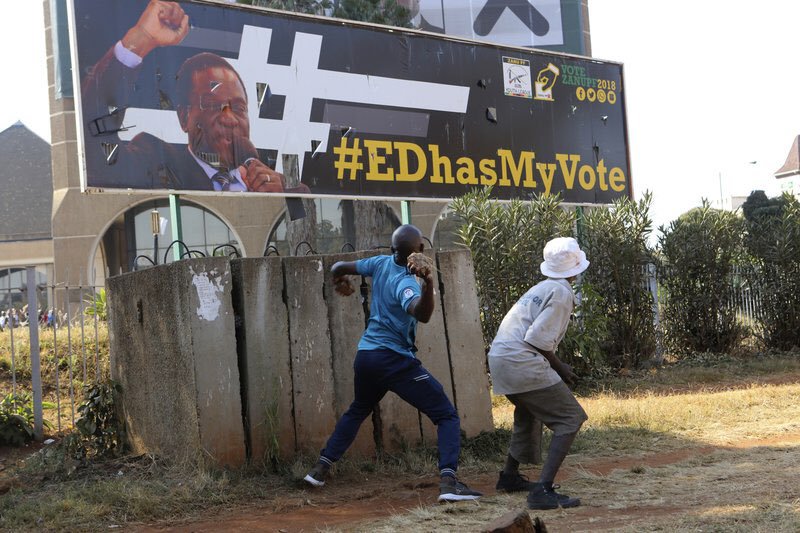By Innocent Mujeri
Political analysts have dismissed opposition activist, Dr Alex Magaisa’s recent Big Saturday Read (BSR) as nothing but a dossier meant to stir people’s emotions against the Government.
Magaisa in his latest BSR insinuated that millions of US dollars were siphoned from the national coffers under the guise of Government’s Farm Mechanisation Programme (FMP) undertaken between 2007 and 2008. He went further to release a list of the so-called beneficiaries of the programme.
However, analysts dismissed Magaisa’s list as biased as some opposition members such as the late Morgan Tsvangirai, Nelson Chamisa, Job Sikhala and Charlton Hwende who benefitted from the Scheme were deliberately omitted from Magaisa’s list.
Tashinga Chabayanzara accused Magaisa of cherry-picking the names of beneficiaries that he published just to cause commotion in the country.
Chabayanzara said Magaisa’s BSR falsely presented ZANU PF officials as plunderers of State resources, but ignored the fact that beneficiaries of the FMP was across the political divide.
“Magaisa’s alleged exposé of people who looted from Government through the FMP was carefully crafted to present ZANU PF officials as looters, while presenting opposition members as saints. If Magaisa was genuine in his exposé of the alleged corruption, why did he omit the MDC-Alliance Vice Chairperson, Job Sikhala who benefitted US$100 000 under the programme?
“Why did he omit the late Morgan Tsvangirai who benefitted US$134 765? Why are Chamisa and Hwende not on the list? Why is Gibson Sibanda who benefited US$21 540 not on the list? Maybe Magaisa omitted members of the opposition from his BSR list because he is an opposition activist. Such biased reporting discredits him as a blogger,” said Chabayanzara.
Another analyst, Terrence Chipwanya said Magaisa’s recent BSR was meant to incite tribal clashes between people of Mashonaland region and those in Matabeleland region.
“By insinuating in his BSR that the people in Mashonaland Provinces were the most beneficiaries of the Government’s FMP both in terms of numbers and value as compared to those in Matabeleland Provinces, Magaisa was trying to invoke the emotions of the Matabeleland people and push them to think that they are marginalized and neglected by the Government.
“Magaisa was ignorant of the fact that the Mashonaland provinces fall in the region with more intensive agriculture as compared to the Matabeleland region. One can easily see that Magaisa’s article was only meant to cause tribal animosity between people of Mashonaland and Matabeleland region,” said Chipwanya.
Another political analyst, Nobleman Runyanga further said there was nothing sinister for Government to take over debts of ailing companies. He said the trend started in 1980 and it was done in the interest of the country and the economy.
“Magaisa is alleging that it was wrong for Government to assume the debts of the Reserve Bank of Zimbabwe (RBZ) incurred through the Government’s FMP. He must be reminded that the new Zimbabwean Government also assumed loans that had been incurred by the settler regime when the country got its independence in 1980. There is, therefore, nothing wrong in Government assuming loans and obligations that had been incurred by the indigenous people in their bid to increase production on the farms,” said Ruhanya.
Another analyst Bevan Musoko said the FMP was an initiative by Government to equip beneficiaries of the Land Reform Programme to maximize production on the farms. He further said the FMP was one of the many Government programmes meant to assist vulnerable people.
“The FMP was one of the many Government Programmes meant to assist newly resettled farmers. It was a programme just like the Basic Commodities Supply Side Intervention (Bacossi) which assisted ordinary citizens with food parcels in 2007. It can also be equated to the Basic Education Assistant Module (BEAM) programme meant to assist vulnerable students with school fees. The FMP should therefore be seen in this view not as a looting scheme as wrongly alleged by Magaisa,” said Musoko.
The opposition in Zimbabwe is planning protests to be staged on 31 July 2020 and Magaisa’s BSR was seen as a calculated propaganda move to compel people to revolt against Government for its alleged failure to fight corruption in the country.




